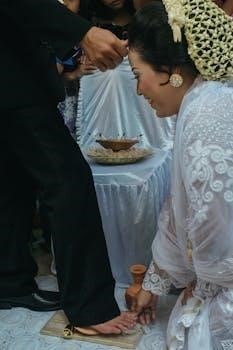3rd Degree Masonic Ritual⁚ An Overview
The 3rd Degree Masonic Ritual, often called the Master Mason degree, represents the culmination of symbolic progression in Freemasonry. It is a dramatic ritual filled with allegory and symbolism, emphasizing the importance of morality, integrity, and the belief in immortality.
The Master Mason Degree, the third and final degree in the Blue Lodge, stands as a pivotal point in a Freemason’s journey. It is a significant step where the candidate is said to reach the “sublime degree” of Freemasonry, marking the completion of their initial training within the craft. This degree dramatically builds upon the teachings of the previous degrees, presenting profound lessons through symbolism and allegory.
The Master Mason degree ritual focuses on themes of life, death, and resurrection, encouraging introspection and contemplation on one’s own mortality. Through participation in the ritual, a Mason is urged to act with courage, fidelity, and devotion. It is a transformative experience designed to instill in the candidate a deeper understanding of Masonic principles and their application to daily life. The degree emphasizes the immortality of the soul, prompting reflection on how this belief should influence actions and decisions.
Importantly, the Master Mason degree is not an end but rather a beginning. It equips the Mason with the knowledge and inspiration to continue their journey of self-improvement and service to humanity, reinforcing the core values of Freemasonry.
Significance of the Third Degree in Freemasonry
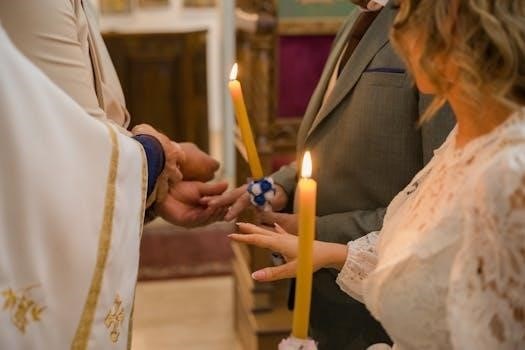
The Third Degree, the Master Mason degree, holds immense significance within Freemasonry, representing the culmination of the Blue Lodge experience. It is considered the most dramatic and extensive of the three degrees, imparting crucial lessons about life, death, and the pursuit of knowledge. It is a reflection, rather than just an active life.
The Third Degree is often seen as the height of Ancient Free-masonry, a sublime experience where a Mason commits to courage, fidelity and devotion to their God. The symbolism and allegory in the Master Mason degree serves to inspire self-improvement and moral development. The candidate strengthens their knowledge of the Masonic teachings, reinforcing the importance of these principles.
Furthermore, the Third Degree emphasizes the immortality of the soul, encouraging contemplation of the afterlife and how this understanding should influence one’s actions in the present. It is a transformative experience designed to inspire the candidate to continue their journey of self-improvement and service to humanity. The Master Mason degree is not merely a conclusion, but a foundation for continued growth and contribution.
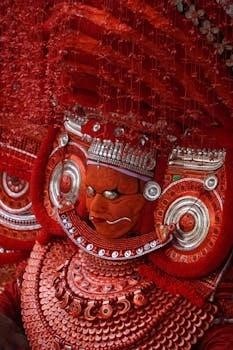
Key Elements of the 3rd Degree Masonic Ritual
The 3rd Degree Masonic Ritual, pivotal in Freemasonry, comprises several key elements that contribute to its profound impact. Central to the degree is the Raising Ceremony, a dramatic portrayal of death and resurrection, symbolizing the immortality of the soul. This ceremony involves a representation of the death of Hiram Abiff, the chief architect of King Solomon’s Temple, and his subsequent raising.
Another key element is the use of symbolism and allegory. Throughout the ritual, candidates encounter various symbols, such as the sprig of acacia, which represent immortality and innocence. The ritual incorporates instruction, imparting moral and philosophical lessons through lectures and explanations. The candidate takes solemn obligations, promising to uphold the principles and secrets of a Master Mason.
The password, grip, and tokens associated with the degree serve as means of recognition and authentication within the fraternity. The emphasis on courage, fidelity, and devotion is a recurring theme. Ultimately, the key elements of the 3rd Degree Masonic Ritual aim to instill wisdom, promote self-improvement, and deepen the candidate’s understanding of Masonic principles.
The Raising Ceremony⁚ A Detailed Look
The Raising Ceremony forms the heart of the 3rd Degree Masonic Ritual, a deeply symbolic and theatrical event designed to impart profound lessons. It centers around the legend of Hiram Abiff, the master architect of King Solomon’s Temple, whose death and subsequent raising represent the triumph of good over evil, light over darkness, and ultimately, the immortality of the soul.
The candidate symbolically represents Hiram Abiff, undergoing a simulated death experience. The ceremony involves specific actions and recitations by the officers of the lodge, each playing a crucial role in the narrative. The candidate is raised from a symbolic grave, signifying resurrection and the attainment of Master Mason status.
Darkness and light play a significant role, enhancing the dramatic effect. The use of props and gestures further emphasizes the allegorical nature of the ritual. The Raising Ceremony serves to impress upon the candidate the importance of courage, fidelity, and the pursuit of knowledge. It is a powerful and moving experience intended to leave a lasting impact on the newly raised Master Mason.
Symbolism and Allegory in the Third Degree
The Third Degree of Freemasonry is replete with symbolism and allegory, serving as a powerful means of conveying complex moral and philosophical lessons. Central to this symbolism is the legend of Hiram Abiff, the master architect, which acts as an allegory for the search for truth, the struggle against adversity, and the eventual triumph of good.
Various tools and objects within the lodge room also hold symbolic meaning, representing virtues, principles, and the pursuit of self-improvement. Light and darkness are employed to represent knowledge and ignorance, respectively, while specific gestures and actions carry hidden meanings that are revealed through study and reflection.
The allegory of death and resurrection is a key element, symbolizing the immortality of the soul and the potential for spiritual rebirth. By understanding these symbols and allegories, the Master Mason gains a deeper appreciation for the teachings of Freemasonry and their application to everyday life. The Third Degree encourages contemplation and the search for deeper meaning in life.
The Master Mason’s Obligations and Responsibilities
Upon receiving the Third Degree, a Master Mason assumes significant obligations and responsibilities within the fraternity and beyond. These obligations encompass moral conduct, adherence to Masonic principles, and a commitment to contributing to the well-being of society.
A Master Mason is bound to uphold the tenets of Brotherly Love, Relief, and Truth, demonstrating compassion, charity, and integrity in all aspects of life. They are expected to be law-abiding citizens, respecting the governing authorities and upholding the laws of the land.
Furthermore, a Master Mason has a responsibility to support and assist fellow Masons in times of need, offering guidance, counsel, and material assistance when possible. They are encouraged to continue their Masonic education, deepening their understanding of the fraternity’s teachings and symbols.
The Master Mason also has a responsibility to exemplify the principles of Freemasonry in their daily interactions, serving as a role model for others and promoting the values of honesty, justice, and tolerance. Ultimately, the Master Mason’s obligations are a lifelong commitment to self-improvement and service to humanity.
The Password of a Master Mason
The password of a Master Mason serves as a crucial means of identification and authentication within the fraternity. This word, imparted during the Third Degree, is a symbolic representation of the lessons and principles learned throughout the Masonic journey. It allows Master Masons to verify each other’s standing and right to participate in Masonic activities.
The password, often associated with a key figure or event in Masonic lore, carries a deeper significance beyond its literal meaning. It acts as a constant reminder of the values of fidelity, integrity, and brotherly love that are central to the Master Mason’s character.
Furthermore, the password reinforces the importance of secrecy and discretion within the fraternity. It is a safeguard against imposters and ensures that only those who have undergone the proper initiation and demonstrated their commitment to Masonic principles are granted access to the privileges and responsibilities of a Master Mason. The password is a sign to show they have been raised to the degree. It’s a sacred and symbolic element.
Historical Context of the 3rd Degree Ritual
The historical context of the 3rd Degree Masonic Ritual is steeped in layers of tradition and evolving symbolism, with origins debated among historians and scholars. While Freemasonry’s exact genesis remains somewhat obscure, the 3rd Degree, also known as the Master Mason degree, is believed to have solidified its place within the Masonic structure around the early 18th century. Some claim that the third degree containing the mystery was added to Freemasonry about the year 1720.
This period saw a formalization of Masonic practices, transitioning from operative stonemasons to a more speculative and philosophical organization. The ritual is a powerful and meaningful ceremony that has been practiced for centuries. The Master Mason degree, with its themes of death, resurrection, and the search for ultimate truth, likely drew inspiration from ancient mystery traditions, biblical narratives, and the evolving social and intellectual landscape of the time. The immortality of man’s soul is emphasised.
Variations in 3rd Degree Rituals Across Different Masonic Jurisdictions
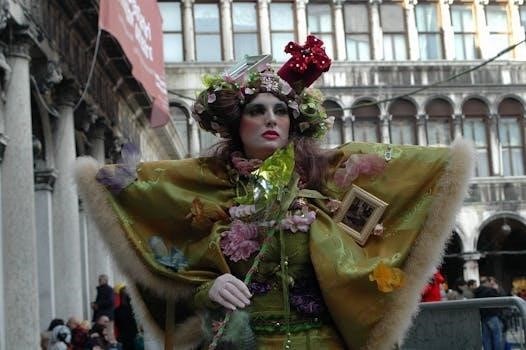
The 3rd Degree Masonic Ritual, while sharing a common core narrative and symbolism, exhibits notable variations across different Masonic jurisdictions worldwide. These variations stem from diverse historical influences, cultural adaptations, and the autonomy of Grand Lodges in shaping their ritualistic practices. Though others state that it formed part of the ceremonies at a much earlier date. These variations reflect the unique interpretations and emphases placed on the degree’s allegorical lessons.
Some jurisdictions may incorporate specific historical figures or events relevant to their region, while others might emphasize particular moral or philosophical aspects of the ritual. The specific wording, dramatic presentations, and even the physical layout of the lodge room can differ significantly. While the core message of the Master Mason degree—focused on mortality, resurrection, and the pursuit of knowledge—remains consistent, the nuances in its expression create a rich tapestry of Masonic traditions globally. Comparing rituals, may be gathered by comparing the present work with Richardsons Monitor or Allyns Ritual.
Impact of the 3rd Degree on a Mason’s Life
The 3rd Degree, or Master Mason degree, profoundly impacts a Mason’s life, marking a significant turning point in their Masonic journey. This degree, being the most dramatic of the three with the most extensive of ritual, emphasizes themes of mortality, resurrection, and the pursuit of wisdom, prompting introspection and a renewed commitment to personal growth.
Having undergone the Raising ceremony, the newly obligated Master Mason is encouraged to contemplate the symbolic lessons imparted, integrating them into their daily life. The degree instills a deeper understanding of Masonic principles, such as brotherly love, relief, and truth, inspiring a stronger dedication to serving others and upholding ethical standards. This encourages us to contemplate how this should influence our actions and decisions.
Furthermore, the 3rd Degree fosters a heightened sense of belonging within the Masonic fraternity. The shared experience of the ritual creates lasting bonds with fellow Masons, strengthening the communal spirit and encouraging active participation in lodge activities and charitable endeavors.
Resources for Further Study of the 3rd Degree
For Masons seeking a deeper understanding of the 3rd Degree, or Master Mason degree, a wealth of resources is available to enhance their knowledge and appreciation of its rich symbolism and teachings. Masonic libraries, often found within Grand Lodges or larger lodges, offer a vast collection of books, articles, and historical documents related to Freemasonry, including detailed expositions of the 3rd Degree ritual.
Online resources, such as Masonic websites and forums, provide access to articles, discussions, and interpretations of the ritual, allowing for collaborative learning and the exchange of insights among Masons worldwide. Several Masonic authors have also penned insightful commentaries and analyses of the 3rd Degree, shedding light on its historical context, philosophical underpinnings, and practical applications.
Additionally, participation in lodge education programs and study groups can provide valuable opportunities for in-depth exploration of the ritual, guided by experienced Masons who can offer their perspectives and answer questions. These educational endeavors help to reinforce a deeper understanding of the teachings and beliefs of the Bristol Masonic Lodge.
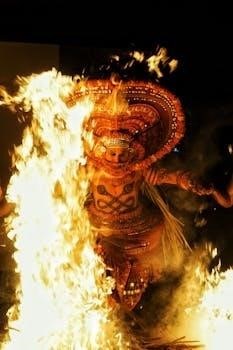
Common Misconceptions About the 3rd Degree and Freemasonry
Numerous misconceptions surround the 3rd Degree of Freemasonry, often fueled by speculation and misinformation. One prevalent myth is that the degree involves sinister or occult practices. In reality, the 3rd Degree, like all Masonic rituals, is a moral allegory designed to impart ethical lessons and promote self-improvement. Another common misconception is that Freemasonry is a religion or a substitute for religion. Freemasonry is not a religion; it requires its members to believe in a Supreme Being but does not dictate specific religious beliefs.
Some believe Freemasonry wields undue political influence or seeks world domination. Such claims lack credible evidence. Freemasonry is focused on personal development and community service. The fraternity encourages its members to be good citizens and contribute positively to society. Another misconception is that Masonic rituals reveal earth-shattering secrets or grant special powers. The rituals are symbolic dramas meant to teach moral principles, not to impart hidden knowledge of a supernatural kind. It does not give its members “special powers”.
